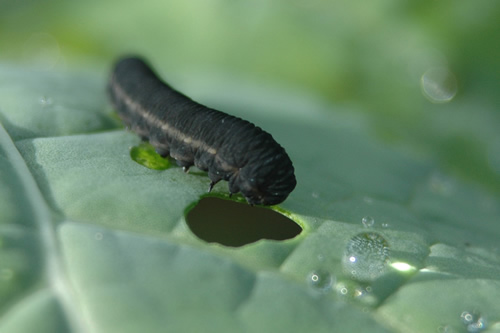
Oilseed rape growers are being warned to stay alert for attacks of Turnip Saw Fly larvae on establishing crops this season. Although only an occasional pest in the UK, larvae have already been spotted on volunteer oilseed rape in southern England and, if conditions stay mild, could repeat the serious damage caused in 2007.
Syngenta Area Manager, Duncan Woodward, reports growers in Dorset have identified the larvae activity, which is coinciding with crop emergence in the excellent growing conditions. "Oilseed rape sowing has been extremely successful, with many growers taking the opportunity to increase their acreage. The early sowing and quick emergence will leave crops especially vulnerable to Turnip Saw Fly attack, along with aphids and Flea Beetle that thrive in warmer conditions," he warns.
In many instances growers have used untreated farm saved seed to complete sowing of larger areas than planned, which will make pest control a high priority, adds Mr Woodward. He also highlights that no insecticidal seed treatments are permitted for crops sown using broadcast establishment techniques, which will be highly susceptible to insect pest attacks and require foliar treatments.
"Growers must be ready to treat with Hallmark Zeon where Flea Beetle risks wiping out establishing crops at the cotyledon stage. A treatment for Flea Beetle and other pests can also give effective control of Turnip Saw Fly larval activity," he advises.
Syngenta Insecticide Technical Manager, Michael Tait, added that crops established from seed treated with the company’s new Cruiser OSR seed treatment would be effectively protected from early pest attacks, including Flea Beetle and aphids. "Trials have also shown that Cruiser OSR will also give valuable control of Turnip Saw Fly larvae and prevent feeding damage. If larval attacks are especially protracted through a mild autumn and crops are unable to grow away, however, a follow-up treatment with Hallmark Zeon may be required."
